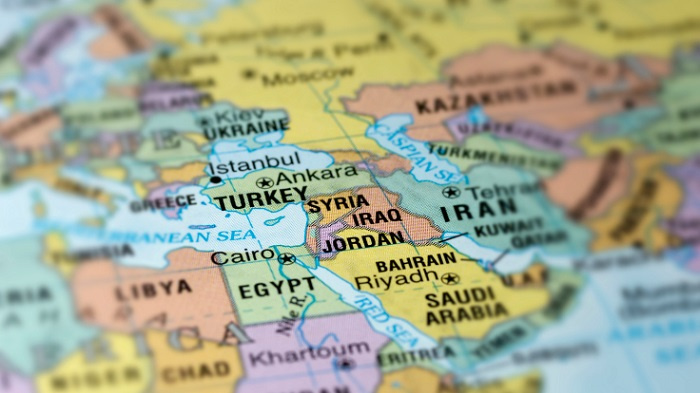Iran’s Foreign Policy in Middle East’s New Order

With the competitive, rapidly-changing nature of Middle East affairs, every major regional player is trying to have the largest share in the formative procedure of a new regional order based on their own interests and national security concerns. Naturally, Iran is no exception as a player and has its own legitimate security concerns.
If continued, recent threats made by the new US administration, in line with policies undertaken by some of Iran’s regional neighbors, will doubtlessly shape a new regional atmosphere. This necessitates clarification of some main aspects of Iran’s foreign policy in order to have an accurate understanding of regional neighbors and the new US administration.
From different viewpoints, Iran’s reality on the ground makes the country inseparable from the Arab World and Middle East affairs. These bring plenty of opportunities and threats onto Iran’s foreign policy, which has rendered inevitable Iran’s active involvement in the region and participation in the process of stabilizing new roles and order, particularly over the past decade with all its transformational developments.
Some of Iran’s regional neighbors have insistently seen this active involvement as Iran’s deliberate effort to threaten the region’s security. Based on false perceptions, such interpretation has turned into the main barrier to Iran’s efforts to expand cooperation and establish a security and political order participated by regional players over past years, amid Middle East developments and nuclear talks underway. Further worsening the already negative atmosphere in recent days is the US’ declared policies and deliberate threats. Under such circumstances, a new security dilemma emerges for Iran in the region, as a result, more than anything, of US strategies and goals in the region.
These policies put Iran in a new security situation and since conflict and dispute are by nature inseparable parts of international politics, the possibility of a conflict arises. However, the existence of differences and conflict of interests do not necessarily result in a collision between governments. Cooperation can always be considered as a practical solution.
This also makes it essential for neighbors and trans-regional players to come to an understanding of certain notions in Iran’s foreign policy and the country’s status in the region. Iran’s geopolitical status, its sources of power, and its unique characteristics call for its involvement in regional issues. In the meantime, Middle East’s unstable and insecure environment also necessitates frameworks for cooperation in order to reduce tensions. Thus, Iran should be seen as an important actor and an irremovable part of the region’s security pivots.
In such a security atmosphere, Iran relies on win-win games with other regional actors, which basically means that Iran does not want to maintain security at the cost of reducing security of other countries in the region. Security for Iran’s regional neighbors also cannot be guaranteed at the cost of insecurity for Iran. In this equation, alignment with the US would risk the emergence of widespread insecurity across the region because Iran sees the region’s security linked not only to its own but also to the security of all countries in the region. It is essential for other actors to understand what has caused Iran’s involvement in Iraq and Syria automatically has given rise to its role in the region: it is an effort to improve national security in the face of spreading Takfiri terrorism and to deter security threats from spreading to the whole region in the future. The involvement could of course augment Iran’s bargaining power in foundation of a new Middle East order.
Unlike what the neighbors imagine, Iran’s efforts are based on pragmatism and strategic measures, rather than on ideology. Nonetheless, some countries label Iran’s efforts as security threats and spread of influece in the region. From a strategic point of view, the threat factor has always been a unifying element for Iran’s rivals. Certain neighbors’ coordinated policies and insistence on unreal interpretation of Iran’s behavior has rendered unimaginable return of security in the region, which is otherwise accessible with collective efforts. A balance of threat may be a reaction from Iran if the current atmosphere lingers. However, Iran’s best reaction would be increased effective involvement in the region’s security and political issue, particularly in the political scene in Syria; and adoption of an active defense policy, constructive and collaborative at the same time. After all, there still remain level of common interests in the region.
*The piece was originally published in the Reformist Shargh daily. Mohammad Arabshahi is a Middle East analyst.

